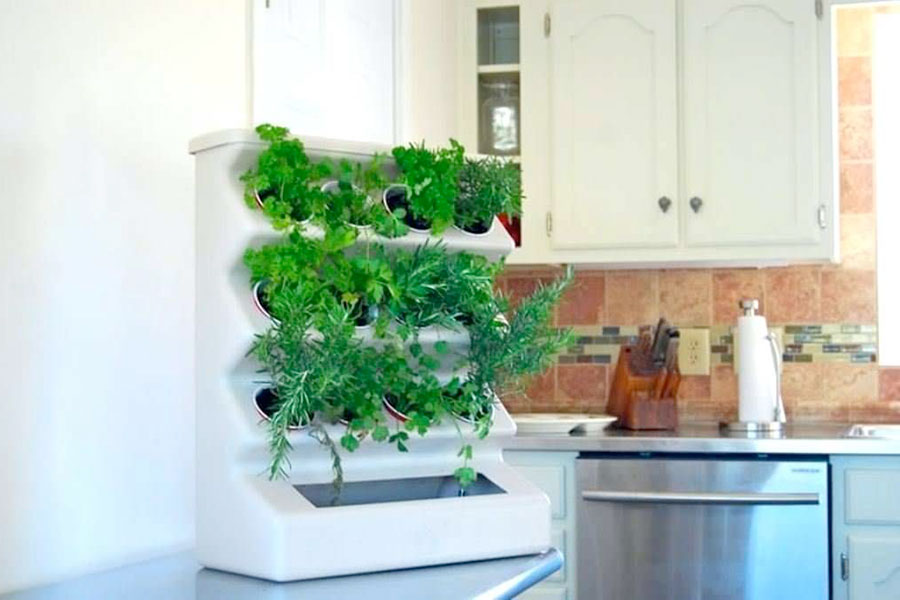Every year we try to look for new and exciting ways to update and renovate our kitchens. As the heart of the home, the kitchen is always in the spotlight and is the center of any home renovation project. And with good reason too. The kitchen is the soul of the home, its drive, a place of bonding for families, a place of nurturing. A kitchen is as much of a social gathering spot as a personal bubble to seek comfort. That is why we love to give it constant seasonal revamps, let our personality shine as it changes with the seasons. Every season brings something new with it, and spring isn't any different, it comes with vast inspiration to renovate and better ourselves and our surroundings.
What better way to take care of your kitchen than by taking care of yourself from the inside? There is nothing better than knowing that 100% fresh ingredients are going into every meal you prepare for your family. What could be better than fresh herbs? Ones that you have grown yourself. You don't need to have a spacious garden to have a green thumb and incorporate a herb garden to your home as you can do it right from your kitchen. Indoor herb gardens don't have to be overly complicated if done right.
START OFF WITH A STRONG FOUNDATION
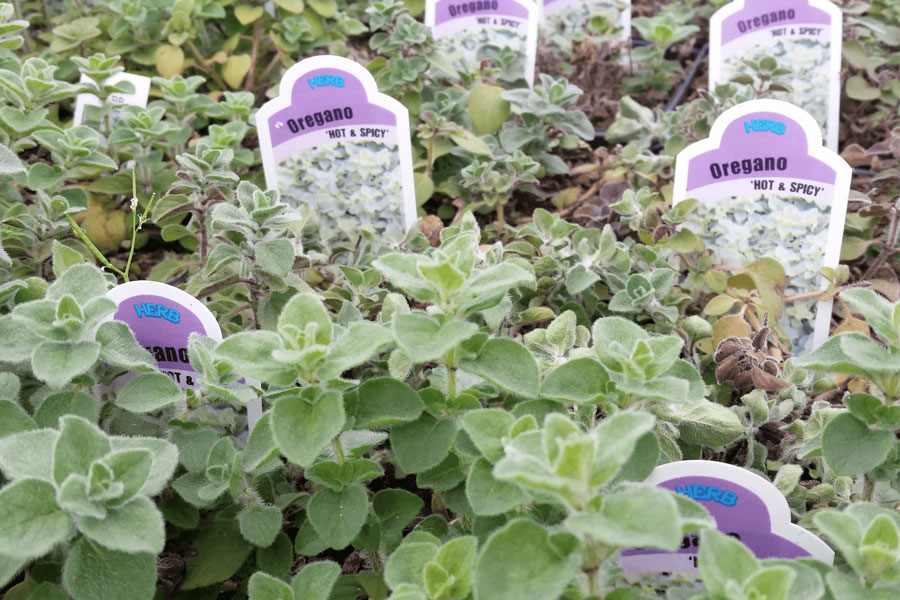
while it might sound obvious, many still leave their garden center or nursery with less-than-ideal plants for their herb garden. Don't make their mistake. Before placing a plant in your cart, take a good look at it and make sure you won't be literally taking back home a bad taste in our mouth. Take a thorough look and try to spot if the plant has wilted, its leaves developed brown spots, or past it's prime. Remember, all plants and their needs are different, so make sure to choose plants will be better suited for an indoor garden.
MAKE THE RIGHT CHOICES
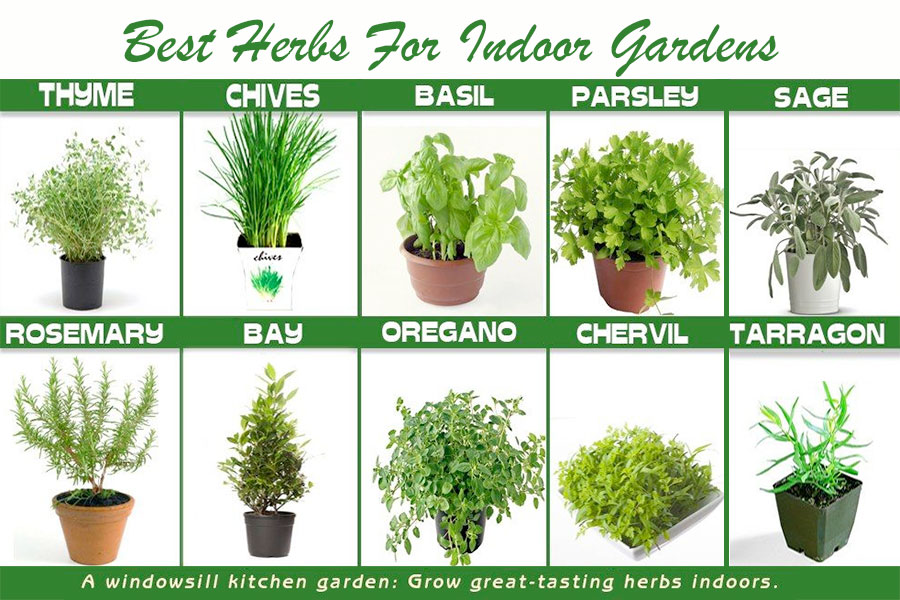
Choose herbs that are better suited for an indoor environment such; as parsley, basil, sage, thyme, lemongrass, chives, oregano, basil, rosemary, and mint are great plants to start your herb garden. There's no point to an indoor herb garden if even the utmost of care can't help a plant that's not meant to be inside. When buying herbs for your garden, especially an indoors one, it's always better for the plant to have never grown outside as the shock of bringing them from the outside to the inside will affect its growth and production cycle.
KEEP YOUR HERBS HEALTHY
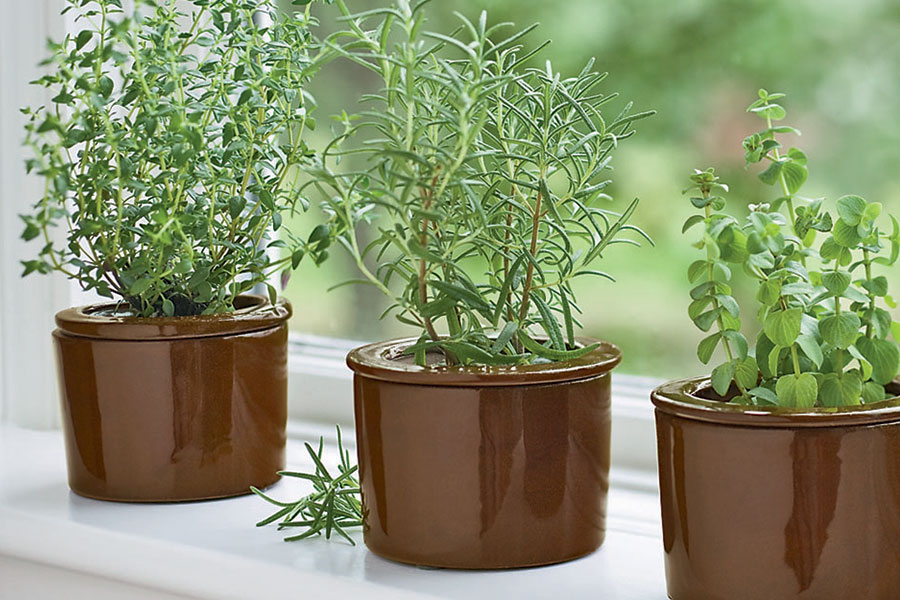
Where you place them is literally vital to your herbs' health. Ensure your plants will get plenty of natural sunlight and the right amount of shade, rotate them throughout the day so its foliage can receive the right amount of light.
A commonly and repeated mistake is planting all plants in the same pot, this is a huge no-no and should be highly avoided. While some plants do indeed grow better together than others, take mint for example; as mint grows it becomes invasive as it sprawls out and takes the entire pot. It wouldn't make sense to pair it up in the same pot with a much delicate plant such as thyme.
WATERING AND CLIPPING
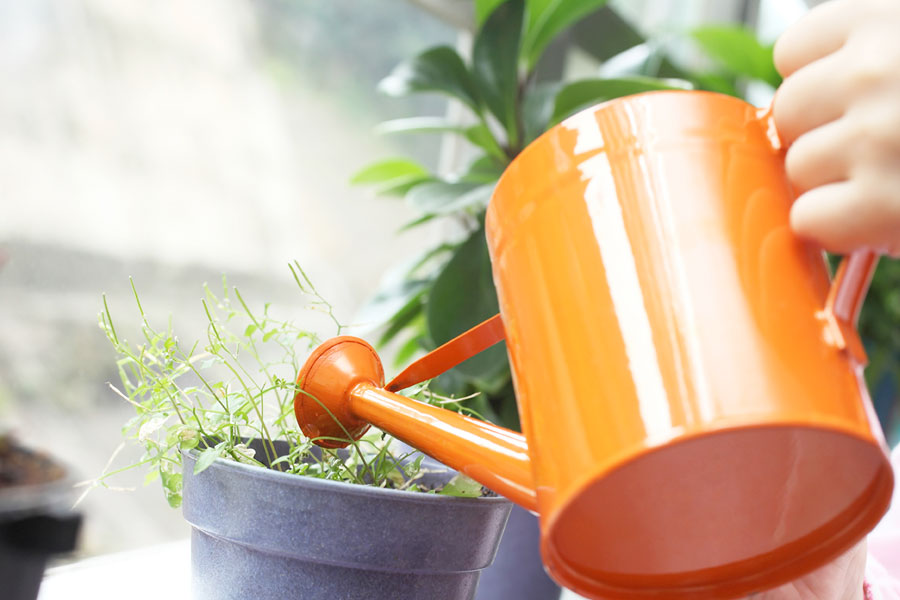
Rule of thumb is to always check the soil before watering. Try minimal watering to prevent your plants from drowning per se. If the soil is dry to the touch, you should probably go ahead and water them. Always water at the base where the stem meets the soil, not the leaves.
Keep your plants in terracotta pots with ample drainage holes in the bottom since herbs are susceptible to fungus. For further ventilation, place pots in a container of small pebbles. Always use high-quality and organic soil containing vermiculite to aid drainage.
Clipping your herbs on a regular basis will promote growth. Remember that you’re growing them to use, so clip away!
HARVESTING
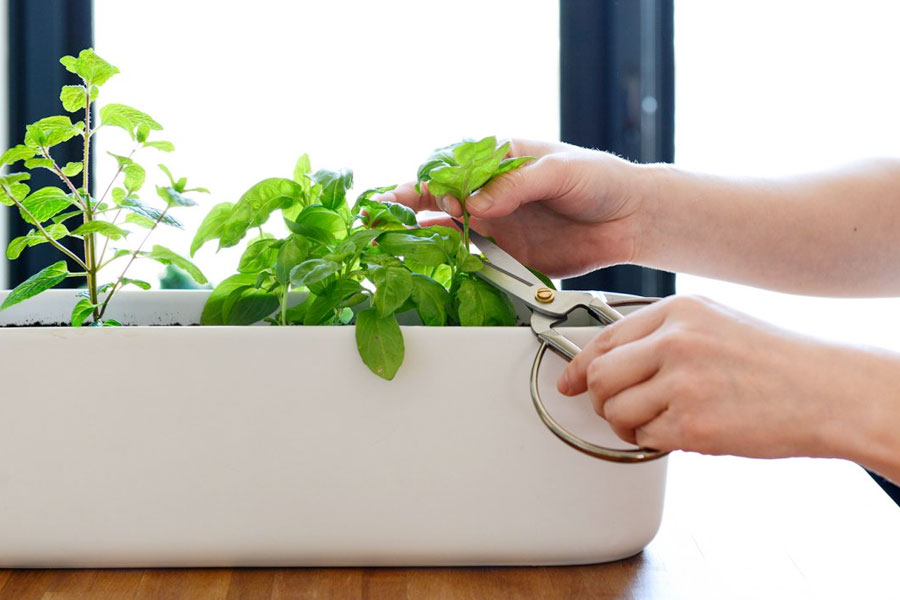
You should always keep your herbs well trimmed to ensure they won't be damaged by any sort of pest. Prune them often to cut back on excess leaves. However, keep the big leaves at the base intact as they act as the plants' solar panels.
Using our tips, you will have a healthy and beautiful looking indoor herb garden right in your kitchen!Got any tips for indoor growing? Let us know!
